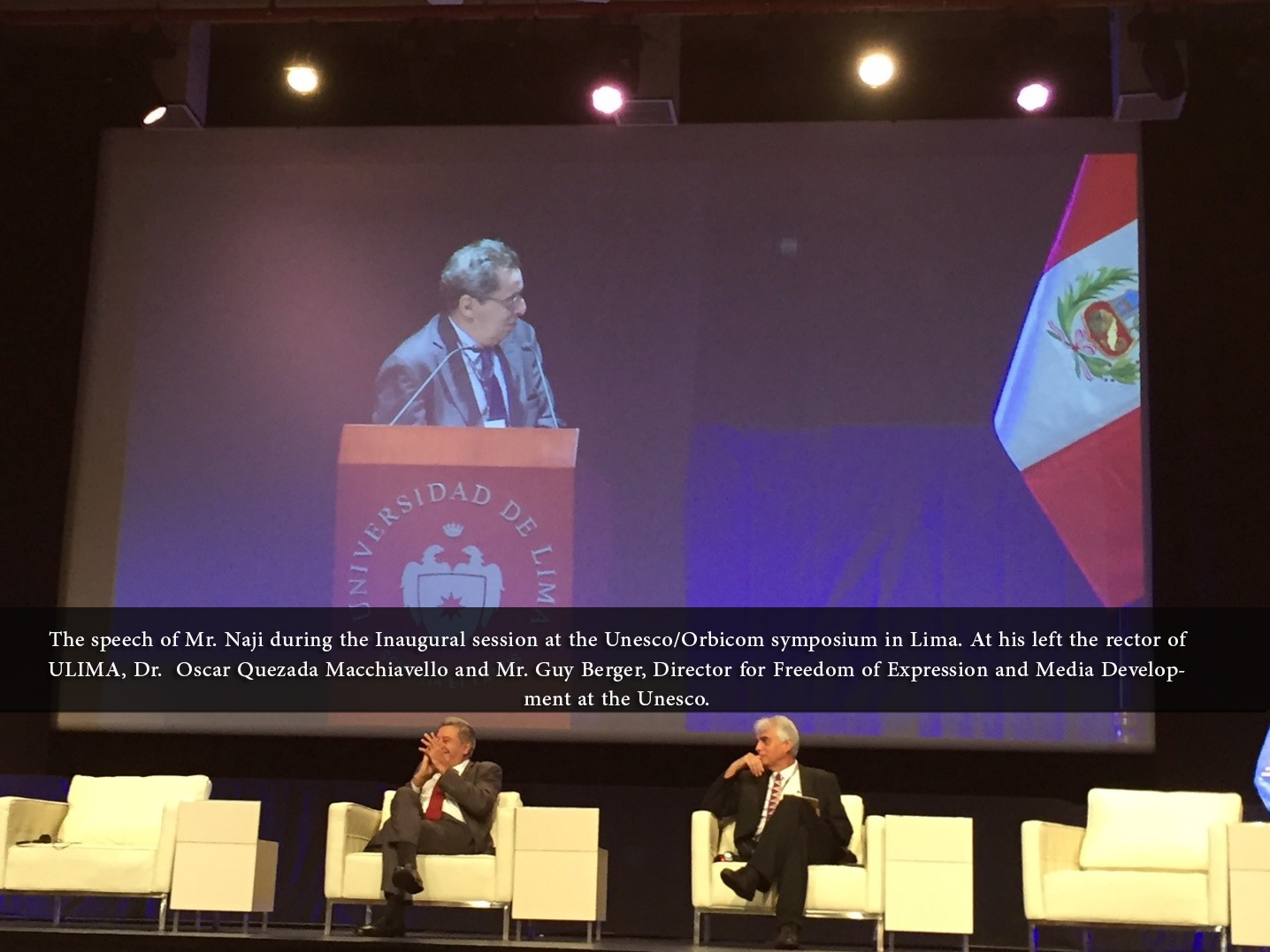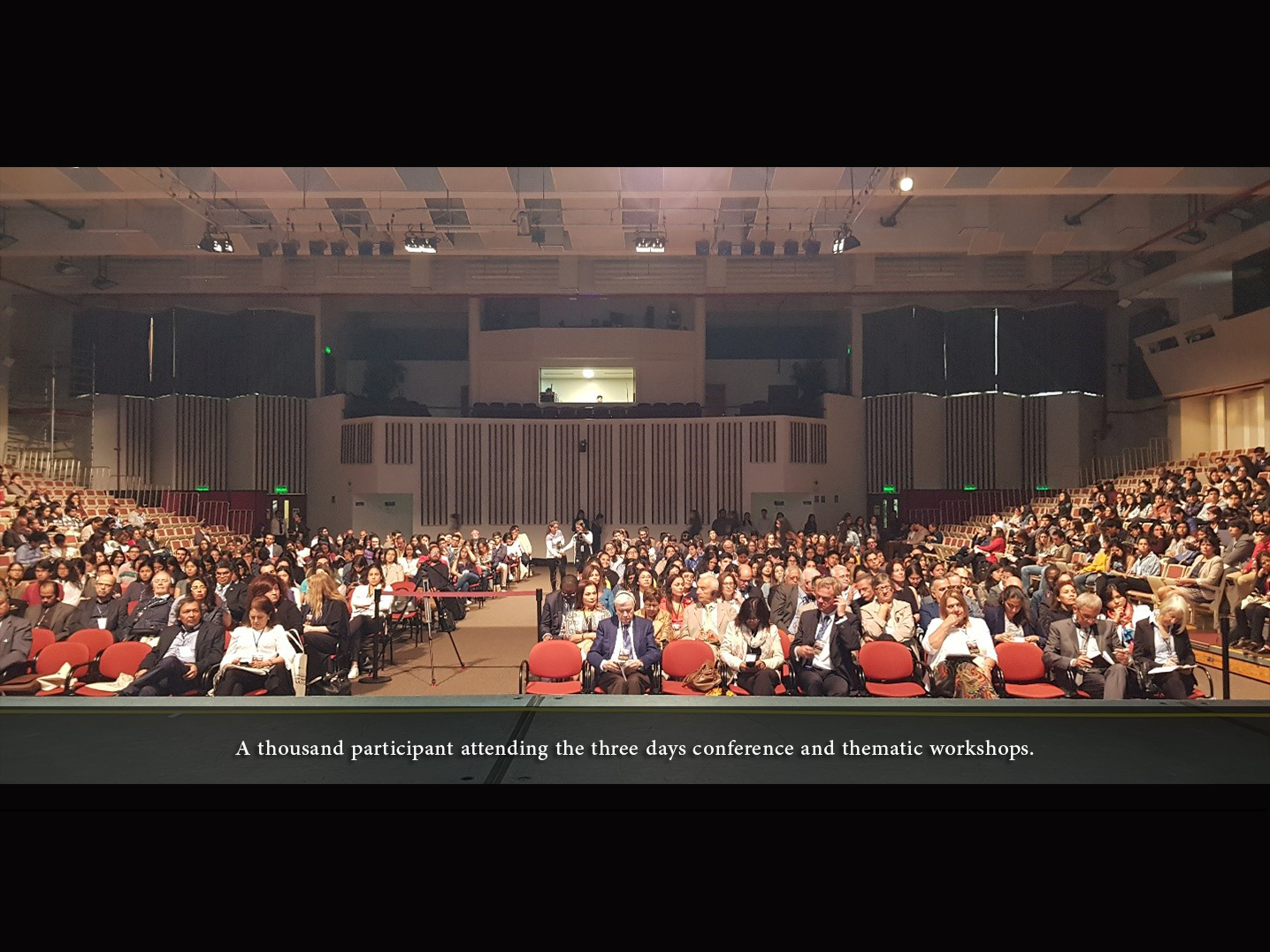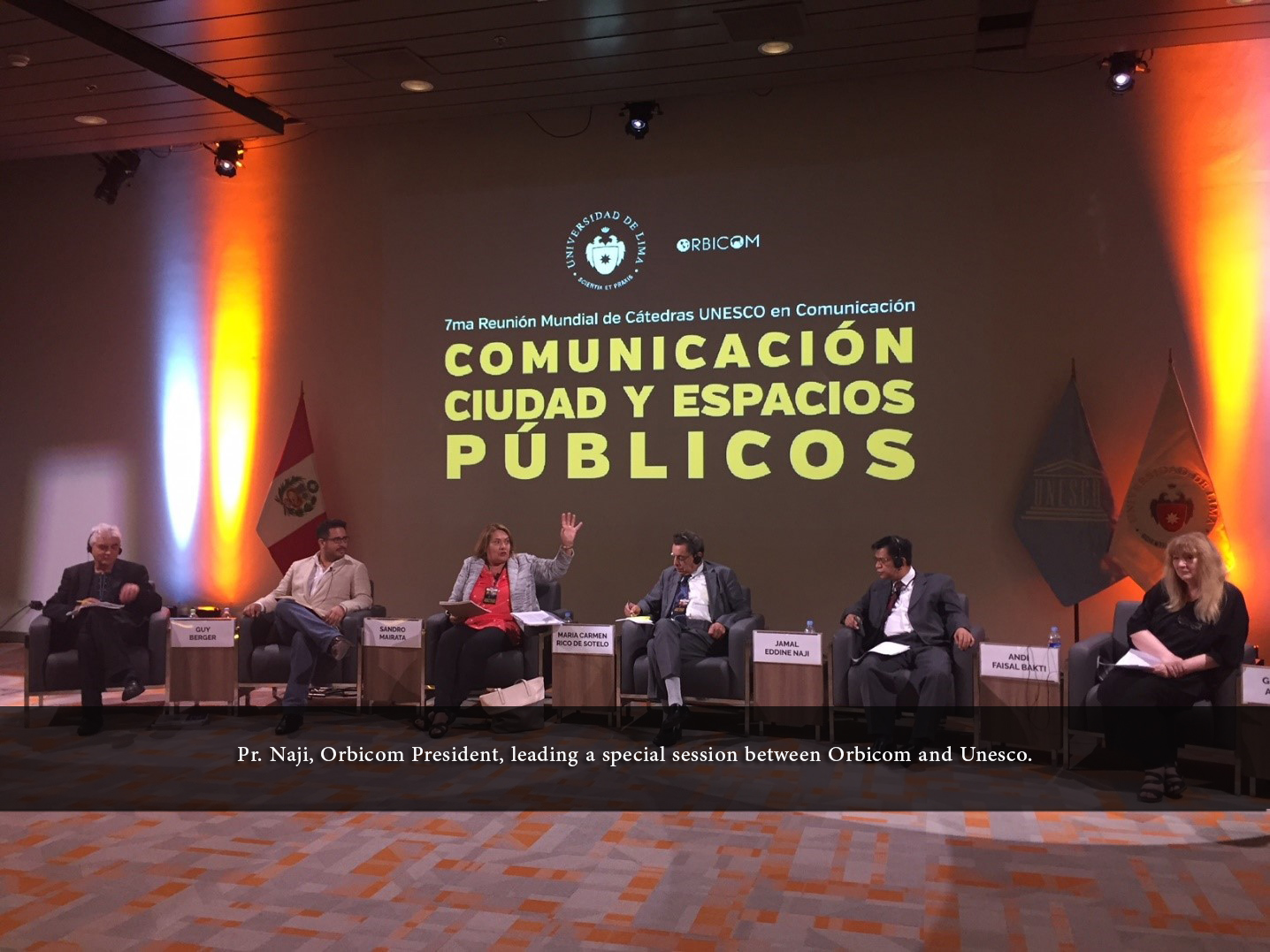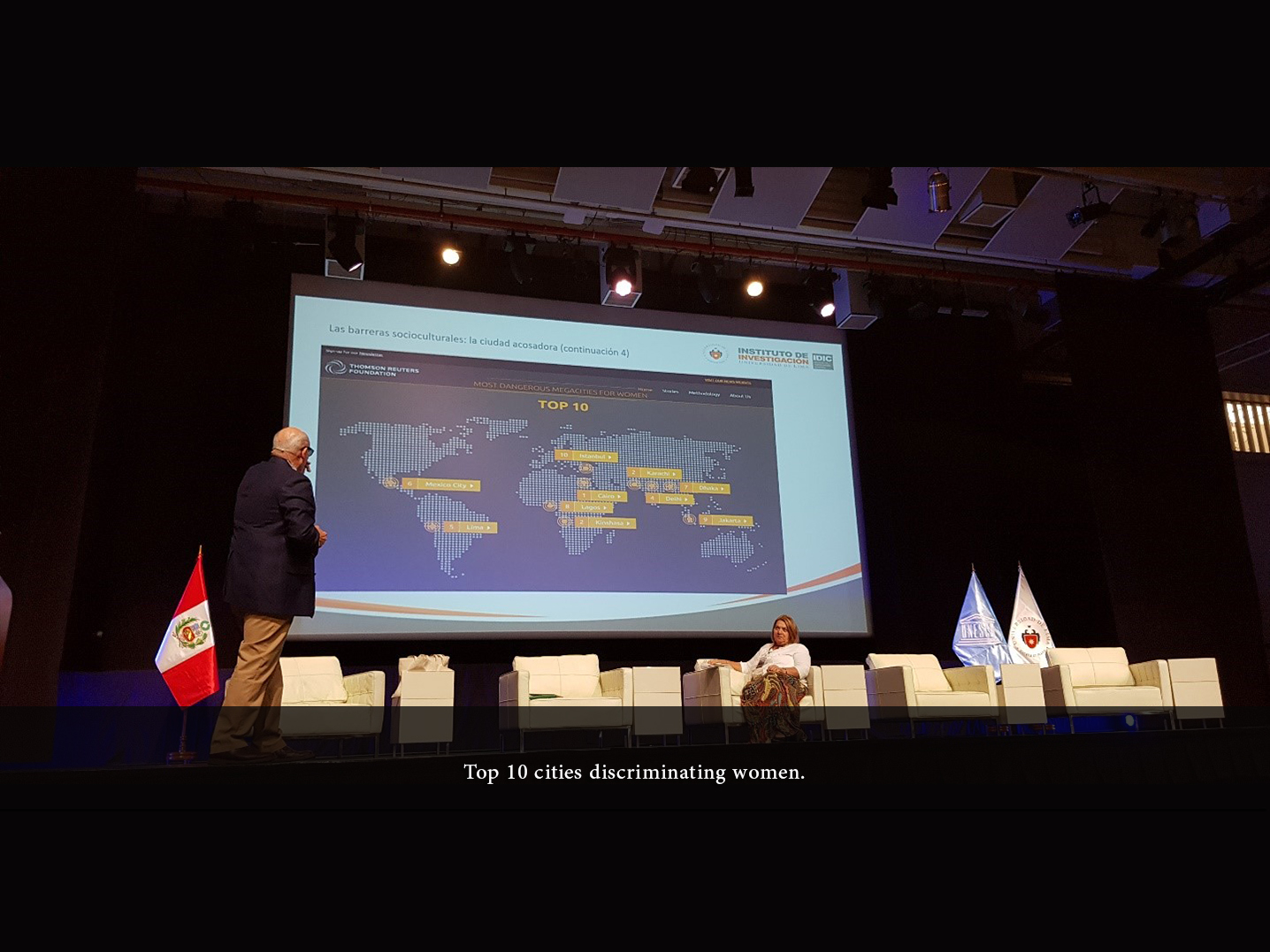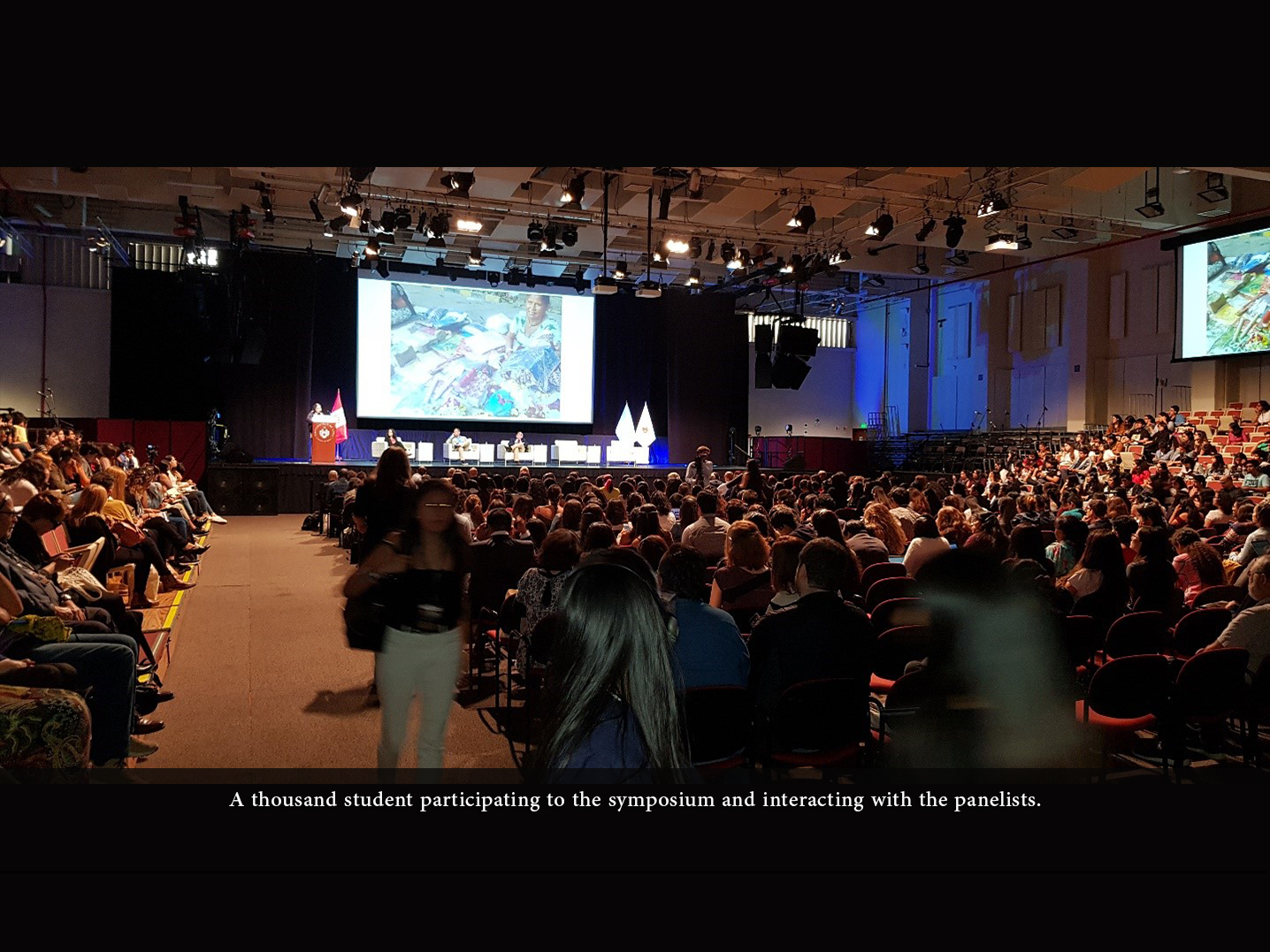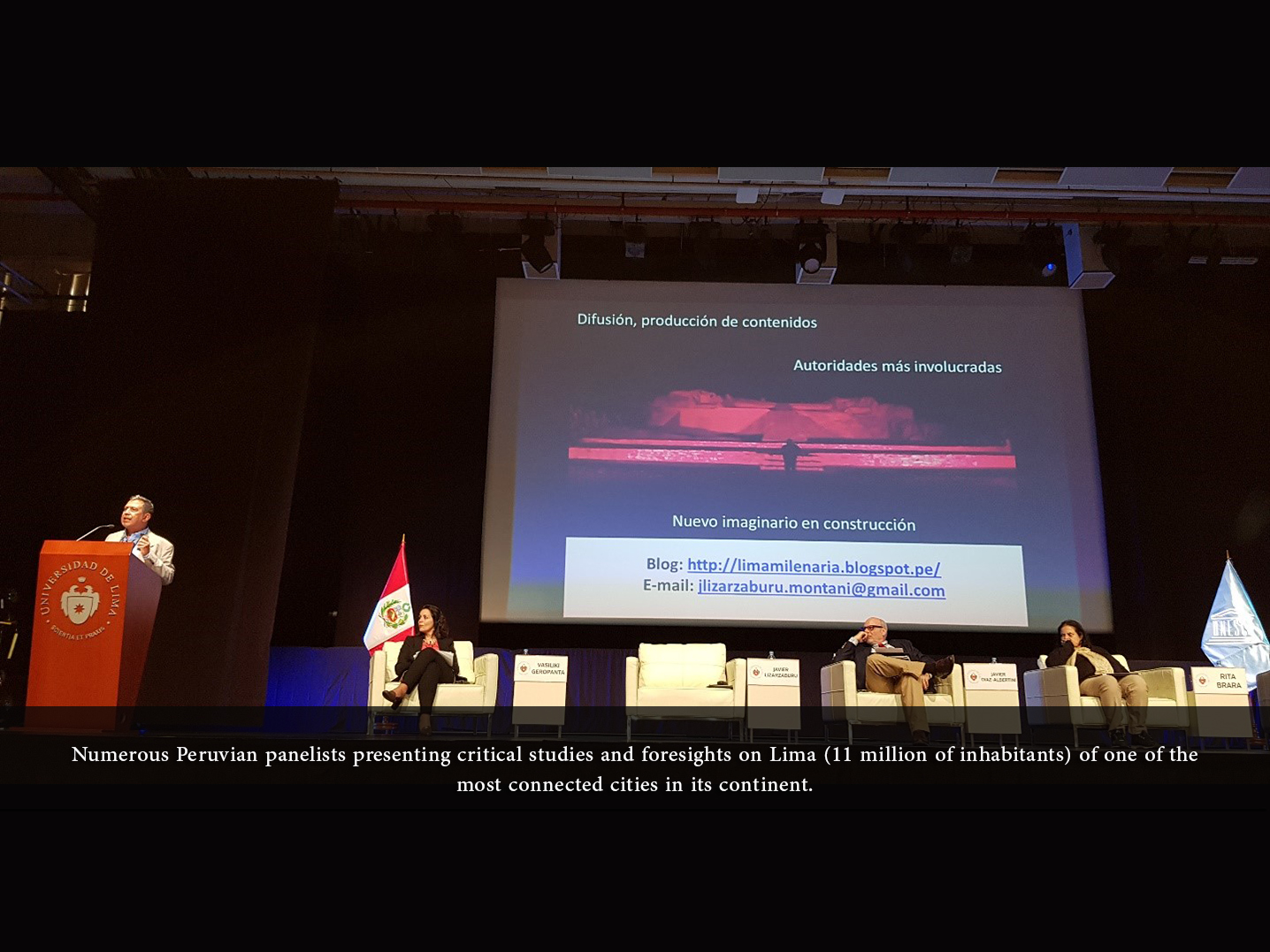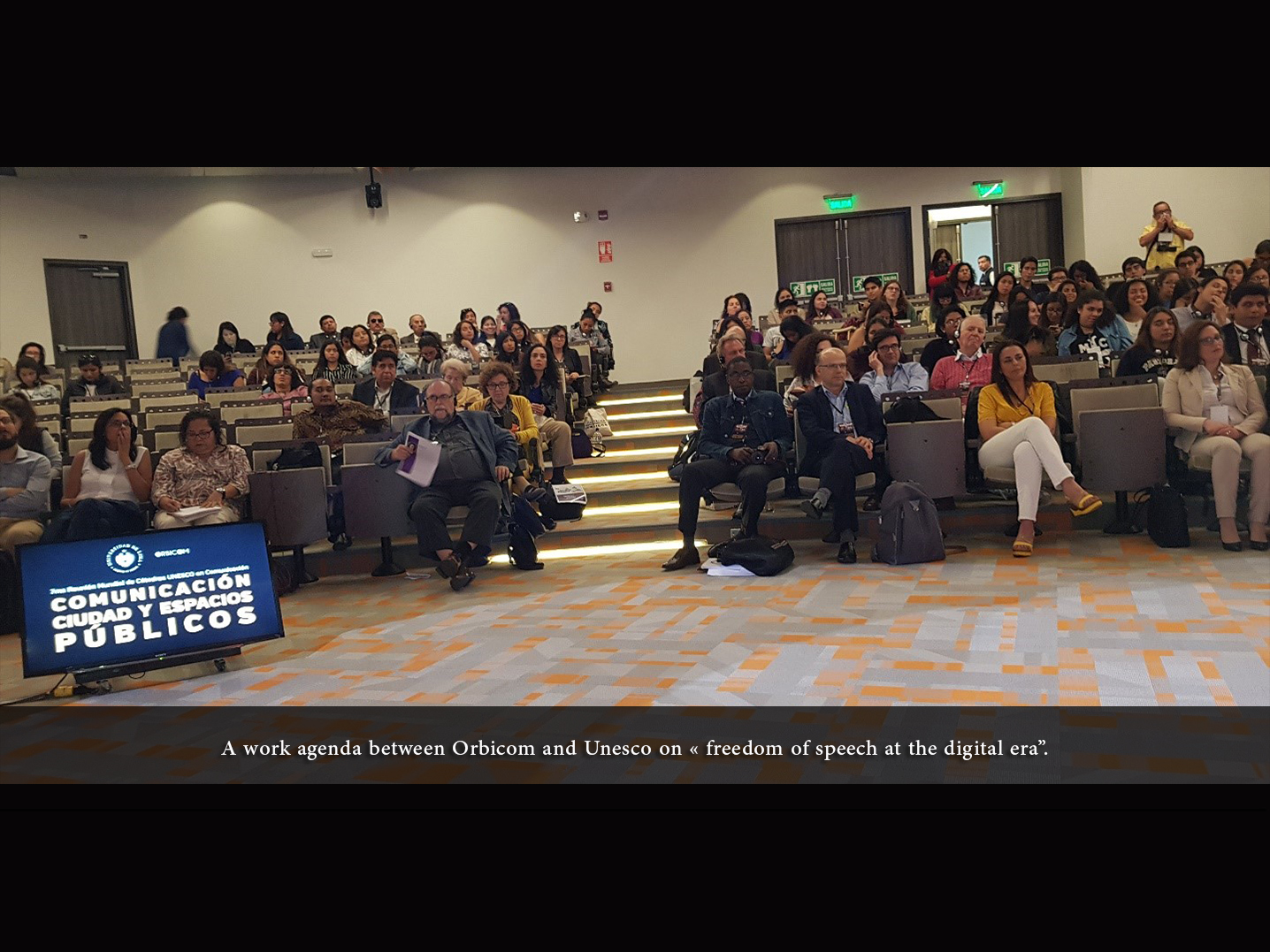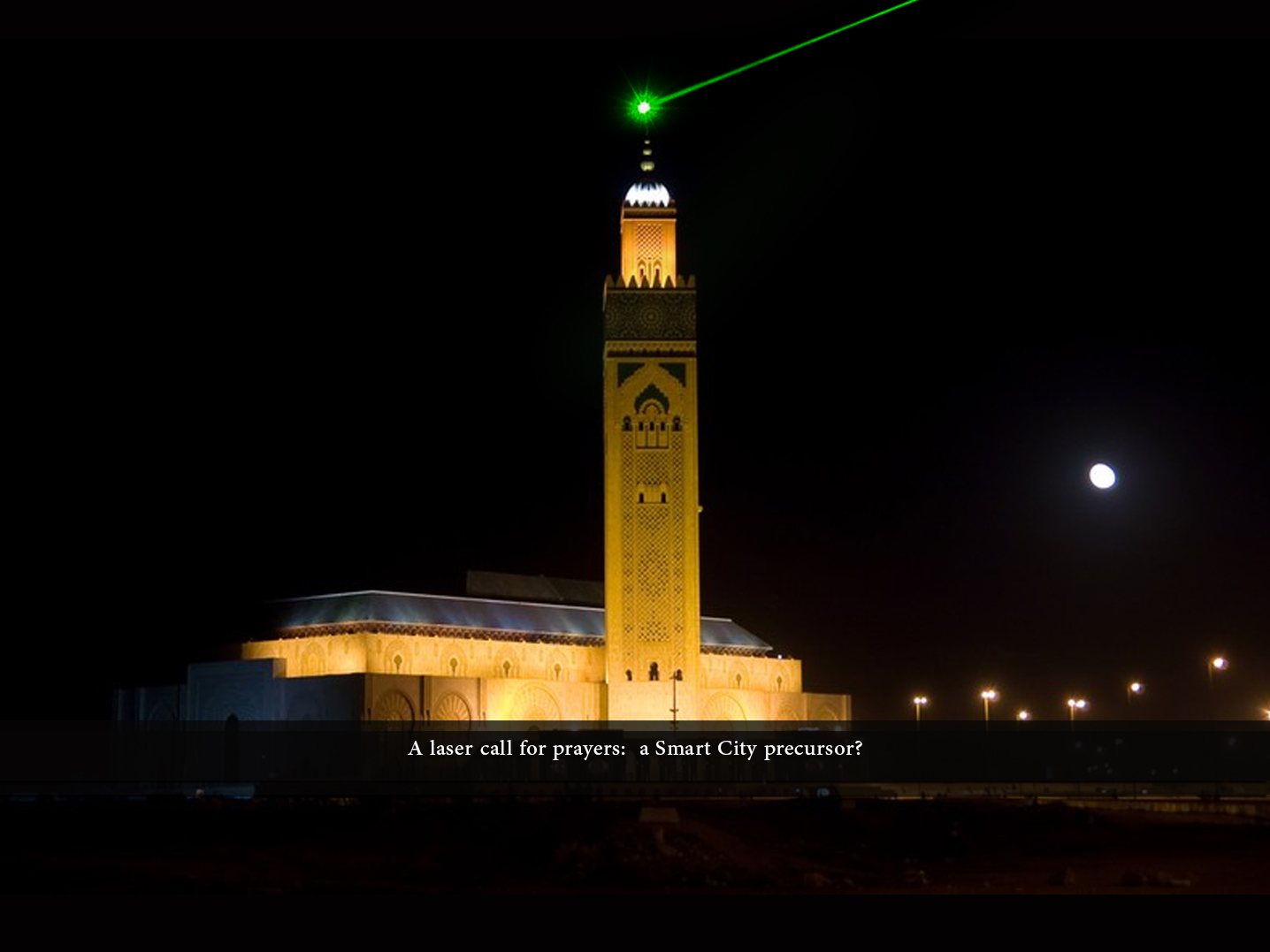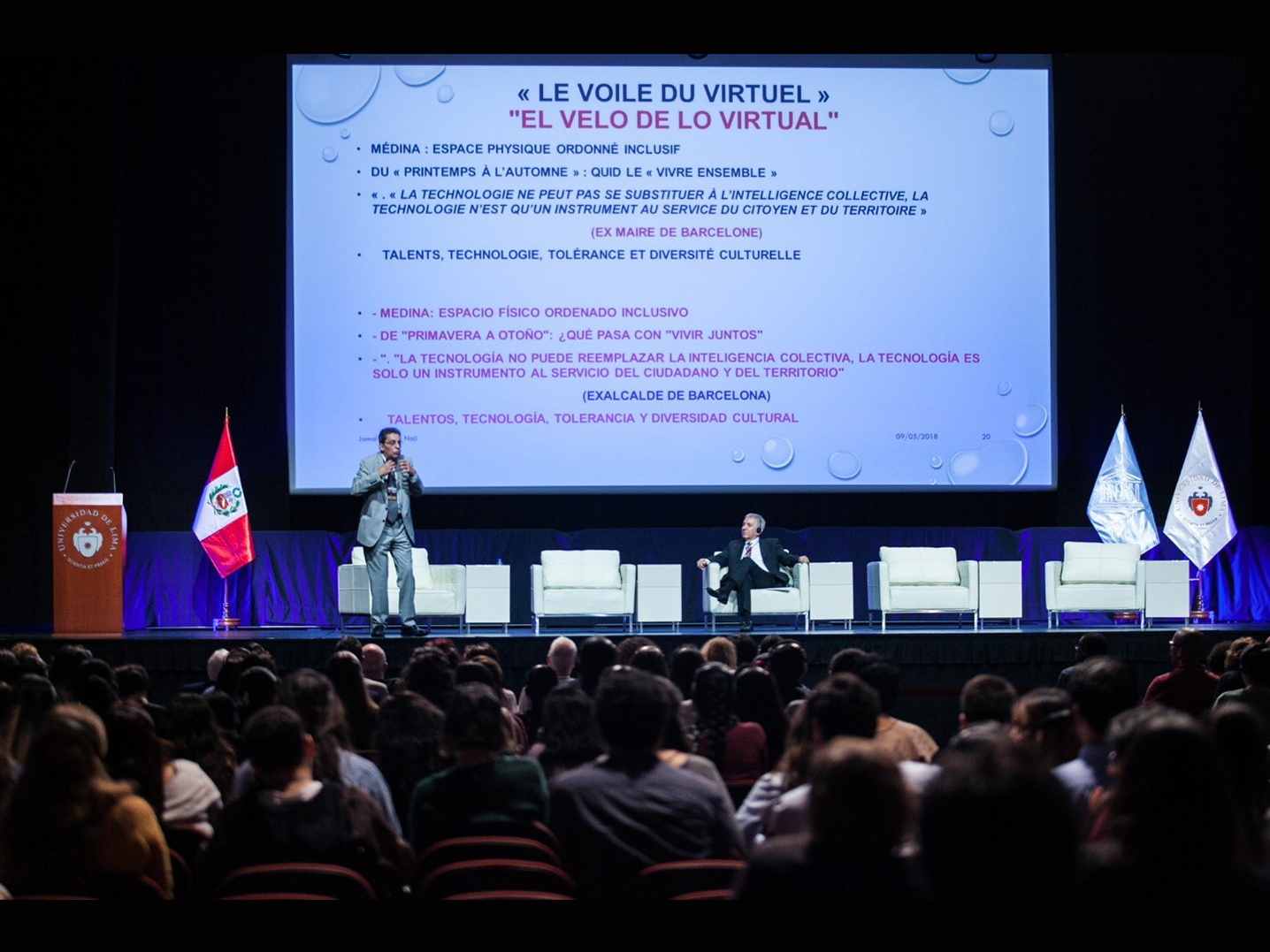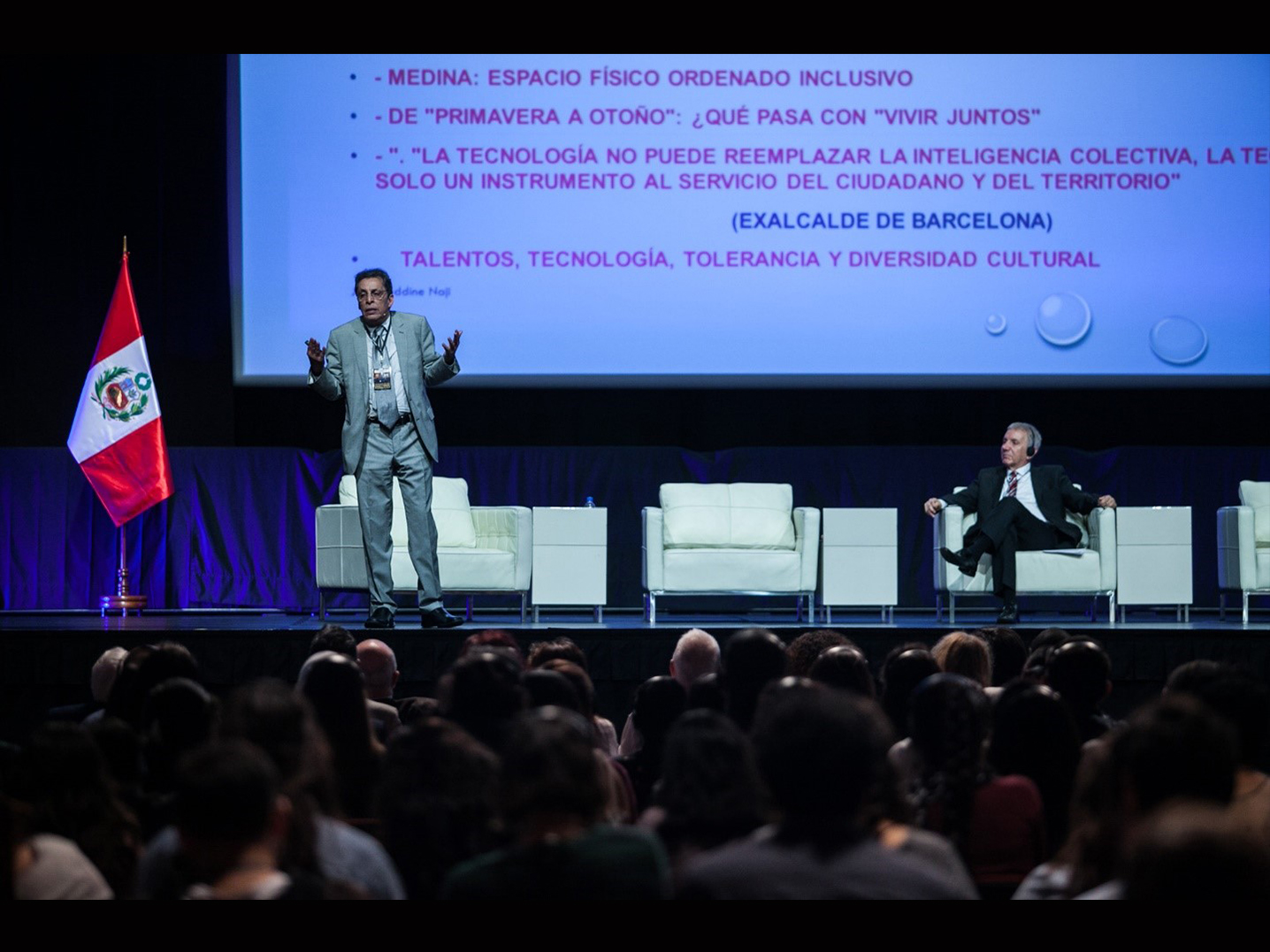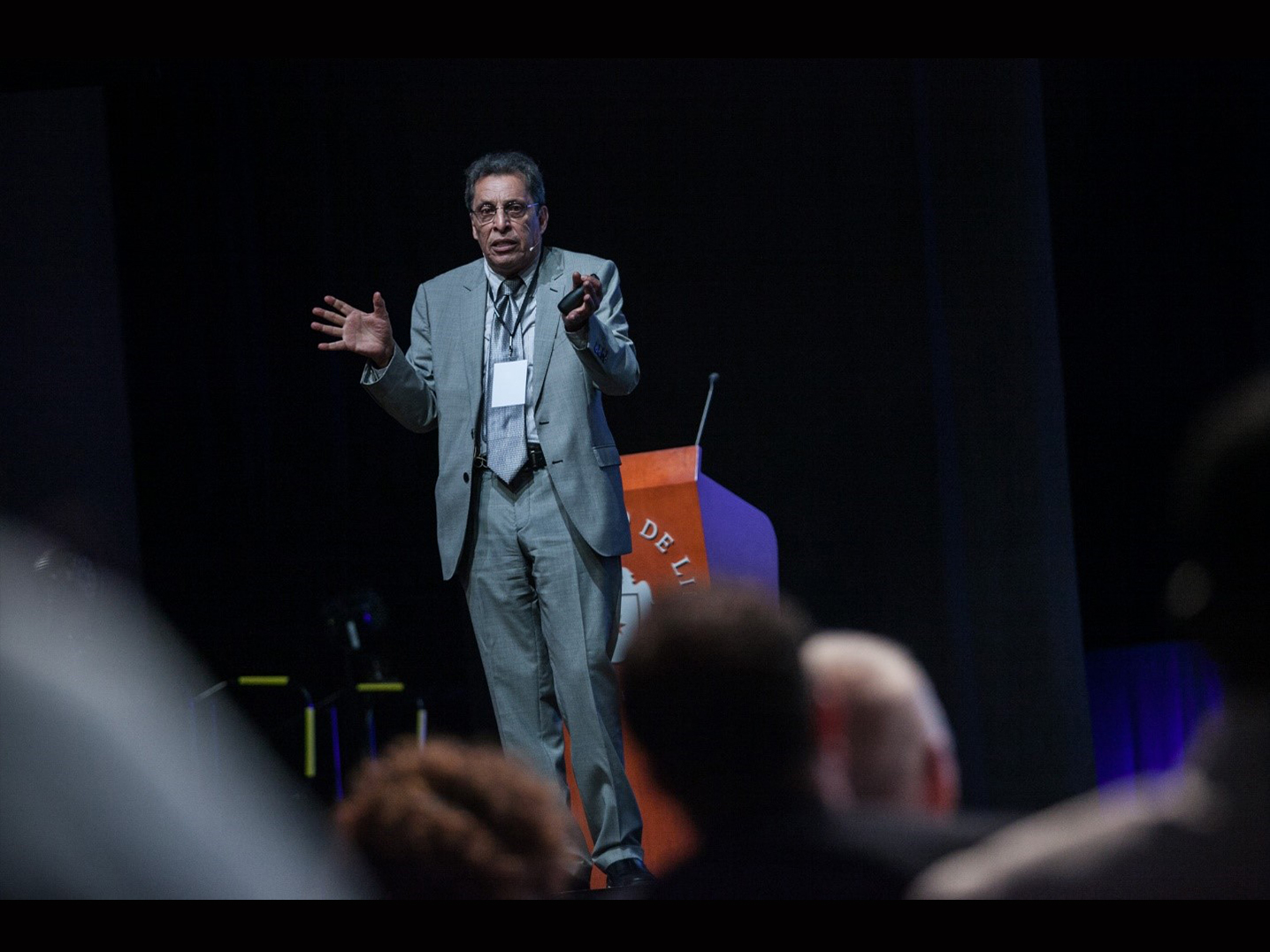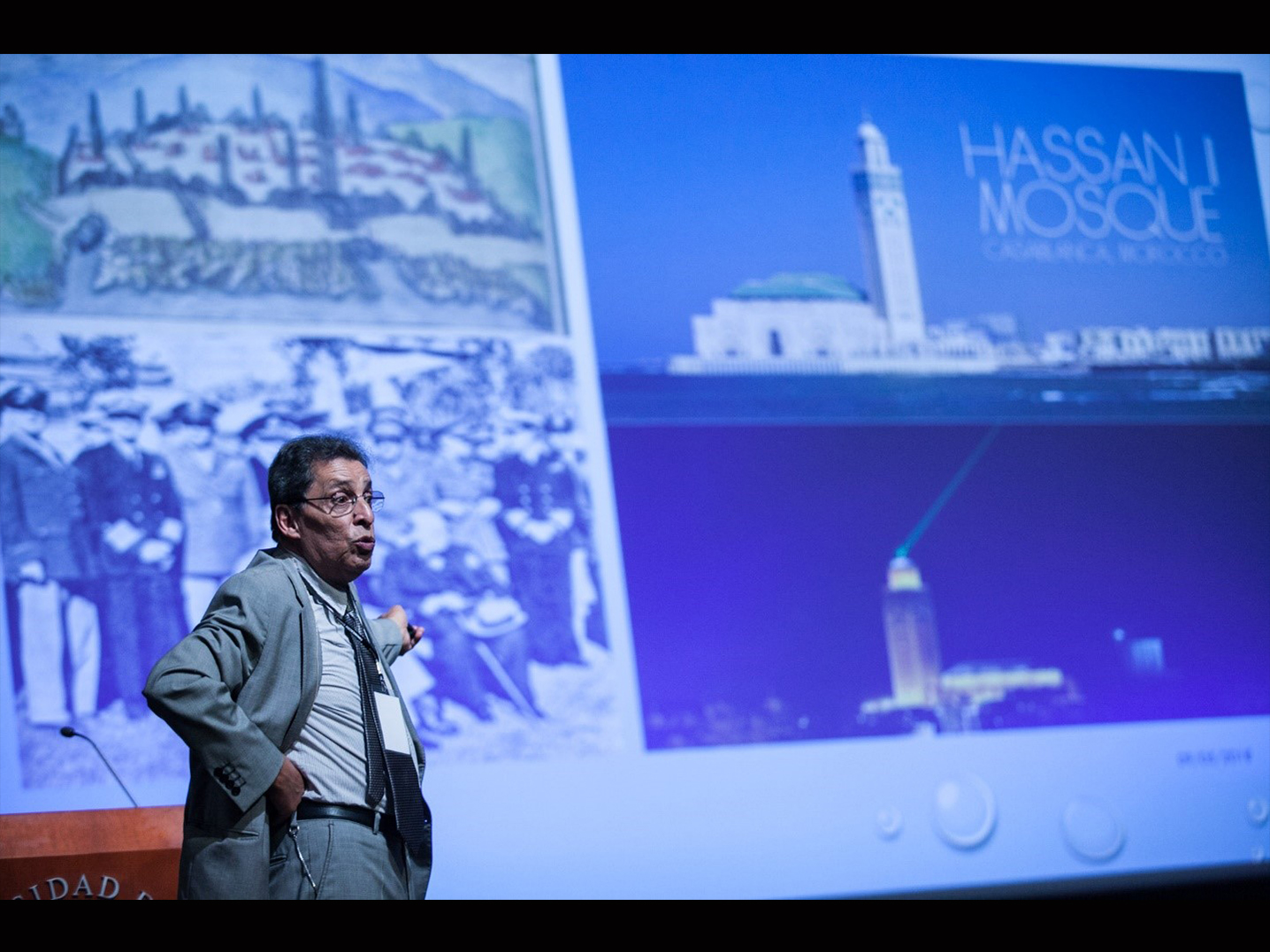Mr. Jamal Eddine Naji in Lima University (Peru) to Debate about the Heritage of the “Arab Medina” versus the “Smart City” in the Digital Era
The University of Lima, headquarters of UNESCO Chair in Science and Praxis, hosted, from 8 to 10 May 2018 in Lima capital of Peru, the scientific symposium of the Network of UNESCO Chairs in Communication (Orbicom). More than 110 panelists and over 930 students were present for three days to participate in 40 meetings, from plenary sessions to workshops and round tables.
This symposium tackled “communication in cities and public spaces”, and particularly “smart cities” in four different languages (Spanish, English, French and Portuguese). Along with this symposium, the thirty members of Orbicom, who came all the way to Lima from all over the world to represent the 38 Chairs (in addition to 200 members associated to the network) held their 7th annual General Assembly (besides the elective GA that are held virtually by the end of every year since the founding of the network in 1994). This GA that was animated by Pr. Jamal Eddine Naji, Director-General of the High Authority for Audiovisual Communication and President of Orbicom, together with the Secretary General Pr. Yves Théorêt (Professor at UQAM University of Montreal), Mr. Pierre Giguère, Deputy Secretary General (Canada’s former ambassador in Africa and Haiti), and members of the network’s Administration Council, witnessed the organization of a special session celebrating the World Press Freedom Day. It was also an exchange workshop with the representatives of UNESCO in Paris, including Mr. Guy Berger, Director, Division of Freedom of Expression and Media Development, aiming to elaborate a medium-term partnership agenda between Orbicom and the UNESCO which will be based on the UN’s SDGs. At the end of the session, this agenda retained “freedom of expression in the digital era” as a 2018/2019 common project between those two partners as it would also be the topic of next year Orbicom colloquium (the UNESCO’s “Think Tank”) taking place in Strasburg.
As for the scientific part of the symposium entitled “Communication, city and public spaces”, it was organized along three days with various multidisciplinary sub-topics, identifying present and future challenges in communication, in the digital era, within the “smart city” and its public spaces, in terms of politics and governance too.
During the inaugural session, Dr. Oscar Quezada Macchiavello, Rector of the hosting University (ULIMA), introduced the topic of this conference, shedding light on how sciences serve democratic values. On the other hand, Mr. Naji chose to enumerate the major challenges of the smart cities, the multiple connectivities in public spaces, in media and their unlimited convergences, and to insist on a “digital humanism” dimension that should be included in the public policies responsible of drawing, imagining and governing these “Smart cities” in the service of a participative and an inclusive citizenship. Subsequently, this unique event in Latin America tackled, in different plenary and thematic sessions or workshops, a large number of issues such as: social inclusion and exclusion; media representations of the city; virtual public space; politics and public space; citizenship and activism; multiculturalism and inter-culturalism in the city; the city story; radicalism and socio-cultural opening, social mediation…
As a key note speaker of one of the 8 plenary sessions, Mr. Naji invited the thousand participants, students, professors, researchers, and Unesco and ORBICOM experts, to travel back to the past, for more than an hour, to wonder about the yesteryear medina and its future in an era of smart cities, entitling his intervention: “From the Arab Medina to the Smart City, the challenges of citizenship, democracy and citizens’ power”.
Mr. Naji started by asking, “Given that the digital era announces the emergence of a certain virtual “civilization”, i.e. a “digital civilization” (wondering when would it advent?), would it be able to offer us, in addition to its incredible communication and sharing possibilities, the ability to add to the best roles and services of our traditional cities? Would “The Smart city” be a “traditional city Plus”? Why would or should it be? Is this what we really want? Why? What offers, services and values of the old city would we like to preserve, keep and see multiplied and probably improved by the virtual world and its connectivity?” Going back to the history of the Arab Medina, with examples from Damascus, Bagdad, Al-Madinah, Cairo, Cartage, Tunis, Fez and Marrakech, these are the question that the public policies, working for the advent and the development of the “smart cities”, should ask without nostalgia to the Arab city being a quite special one, although its model is reminiscent of some ancient greco-roman and punico-phoenician fundamentals. In his intervention, Pr. Naji stood long on this issue with both a futuristic vision and a throwback to the past added the following: the traditional Moroccan medina, one that belongs to the Maghreb, from Carthage to Fez... Some countries, such as Morocco, are starting to address this permanent issue for the future of their city public policies. He also illustrated the engagement of Morocco towards the “connected cities” providing the example of Casablanca and its 2014/2020 plan, besides 70 projects to implement by 2022, that aims to preserve 30% of the city’s superficies for green space and to develop its Open Data, “Casa Urban Data”.
To conclude, Mr. Naji highlighted that the central challenge of all the public policies of these future cities is democracy, necessitating then a strategy of three structuring objectives: a democratic citizenship (concerning the citizens’ behavior, usage, and needs); a citizen democracy (concerning governance) and the appropriation of democracy by the citizens (concerning the real ability of citizens to participate in the functioning of the city, its layout, and its governance)… “It is the citizen who must keep an eye on the city and not vice-versa”.
https://en.unesco.org/news/world-trends-report-launched-peru

